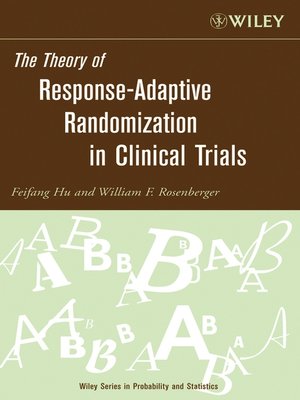The Theory of Response-Adaptive Randomization in Clinical Trials
ebook ∣ Wiley in Probability and Statistics
By Feifang Hu

Sign up to save your library
With an OverDrive account, you can save your favorite libraries for at-a-glance information about availability. Find out more about OverDrive accounts.
Find this title in Libby, the library reading app by OverDrive.



Search for a digital library with this title
Title found at these libraries:
| Library Name | Distance |
|---|---|
| Loading... |
The Theory of Response-Adaptive Randomization in Clinical Trials is the result of the authors' ten-year collaboration as well as their collaborations with other researchers in investigating the important questions regarding response-adaptive randomization in a rigorous mathematical framework. Response-adaptive allocation has a long history in biostatistics literature; however, largely due to the disastrous ECMO trial in the early 1980s, there is a general reluctance to use these procedures.
This timely book represents a mathematically rigorous subdiscipline of experimental design involving randomization and answers fundamental questions, including:
The answers to these questions communicate a thorough understanding of the asymptotic properties of each procedure discussed, including asymptotic normality, consistency, and asymptotic variance of the induced allocation. Topical coverage includes:
Useful for graduate students in mathematics, statistics, and biostatistics as well as researchers and industrial and academic biostatisticians, this book offers a rigorous treatment of the subject in order to find the optimal procedure to use in practice.







